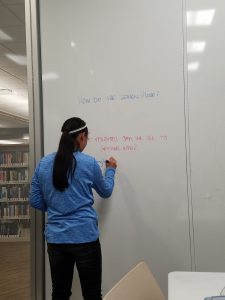Evaluation Planning
Evaluation is the opportunity to learn more about your project–it’s effect on your team, on others, and on the community as well as to improve implementation and planning.
And, evaluation should be built in from the beginning. As you develop your action plan, you will be developing indicators of success and deciding how to measure or document progress. This doesn’t have to be a formal survey since you can document what is happening in many ways.
A good place to start in evaluation planning is in the Youth Leading Community Change toolkit. If you use the storyboard (Activity 1 on pp. 4-15), you will be guided to consider evaluation questions for each part of the project–from how do you document the issue in your community, to how do you monitor progress, and finally how do you measure the impact and outcomes of your work?
Exploring Community Impact
Your project will have both anticipated and unanticipated outcomes. The work you do will ripple out in the form of new relationships among people, changes in health, new resources coming into the community, new voices participating in political process–who knows? There is an empowering process to explore these ripple effects with your group. When you come to a point of reflecting on your progress and impact after you have implemented some component of your project, spending a session considering community impact is worthwhile. It will suggest new ways to tell the story of your impact and also may provide ideas for future steps. You will need an hour or so to do a complete job of using this process of Ripple Effect Mapping: Ripple Mapping Instructions & Diagram.

